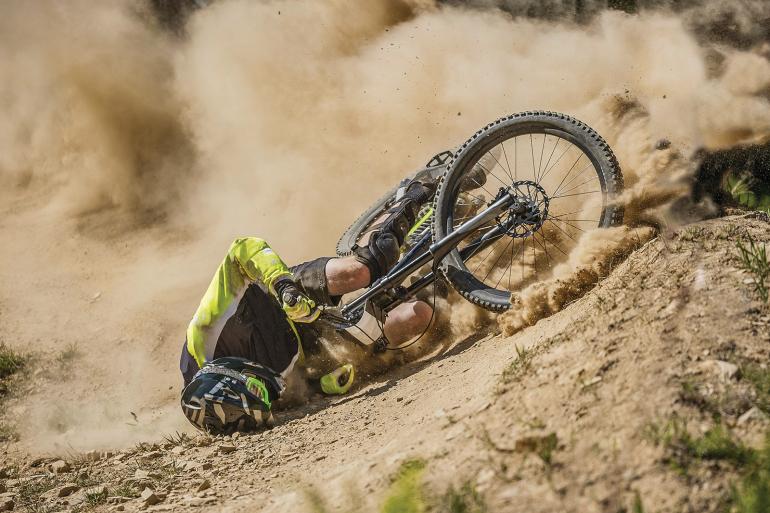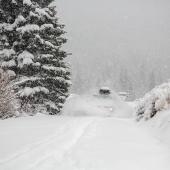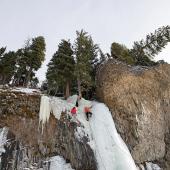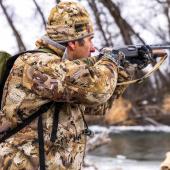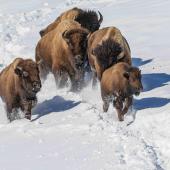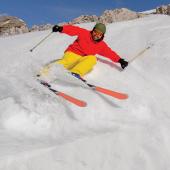Balanced Learning
Finding the sweet spot between pain and gain.
Before I moved to Bozeman, I thought I had a solid foundation in most of the area’s popular outdoor sports. In high school I skied a handful of days each season, mountain biked occasionally, had a few trail runs under my belt, and backpacked at least once a year. But once I moved and started making more outdoorsy friends, I realized I was still a novice at all these activities. Sure, I could hold my own on a trout stream, but rock walls, dirt trails, and ski slopes were another story.
Keeping up with the cadre of crushers I kept as friends required quick learning. No matter the activity—mountain biking, whitewater paddling, or backcountry skiing—I relied on the same simple process. I’d spend as much time as possible practicing, and I jumped at every opportunity to leave my comfort zone. In time, I discovered that a balance between the two—getting reps at the upper threshold of one’s ability and also participating in nerve-shattering group outings—was the best method for dramatically improving performance.
The most effective way to develop any skill is to learn from those more skilled than oneself, and the best mentors are folks who’ve put in countless hours mastering their craft and have developed a vast repertoire of knowledge they’re willing to share.
Stepping out of our comfort zone forces us to expand the scope of terrain that we’re comfortable in and push the boundaries of our ability.
If you’re looking to get into an activity, find a knowledgeable friend and ask to tag along on an outings. Study what she does, how she does it, and try to replicate it. Ask every question that comes to mind, and don’t settle for answers you don’t understand. Take this time to identify what you need help with the most.
Input from a knowledgeable peer can make the difference between fruitless struggle and rapid improvement. We’re all capable of more than we think, and sometimes we just need a hard-charging friend to push us further than we thought possible. Stepping out of our comfort zone forces us to expand the scope of terrain that we’re comfortable in and push the boundaries of our ability.
That said, it’s frustrating as hell to always being the weak link. Spending all your time trying to keep up isn’t fun, and practicing solo—without the fear of slowing down the group or looking like a noob—provides the opportunity to relax and go at your own pace. Recreating on manageable terrain allows you to hone your technique and try new things. You’ll struggle at first, but if you stick with it, you’ll soon familiarize yourself with your strengths and weaknesses, develop your own style, and gain confidence in your approach. Breakthroughs in performance are the result of countless hours of practice.
As a beginner, it’s tempting to be overly critical, but negativity can create frustration. Being great right away isn’t normal, and progress wouldn’t be rewarding if it were. Good things take time.
Remember to acknowledge the limitations of your abilities even as your skills sharpen. Understanding your comfort zone is critical. Even if your ultimate goal is rapid improvement, carve out some time to take it slow. Eventually you’ll find the balance that works for you. For me, an even split between pushing myself and taking it easy yields the best results.
Lastly, make sure to keep your inner dialogue positive. As a beginner, it’s tempting to be overly critical, but negativity can create frustration. Being great right away isn’t normal, and progress wouldn’t be rewarding if it were. Good things take time. Embrace your mistakes, pick yourself up when you fall, remind yourself why you started in the first place, and remember that improvement requires pushing the envelope.
Finally, take comfort in knowing that learning never ends. There’s always room for improvement, and that’s the best part. The reward lies in the pursuit of perfection, not the realization of it. If you buy in and embrace the grind, your efforts will be rewarded. Take your time and strive for greatness. Who knows, maybe one day you’ll be the one mentoring the next generation of mountain phenoms.

